Condensing vs Non Condensing Tankless Water Heaters: What Are the Differences?
When it comes to replacing a water heater in West Monroe, homeowners have the choice between two types: condensing and non-condensing tankless models. Understanding the differences between these two options is crucial in making an informed decision. This article will delve into the details of condensing and non-condensing tankless water heaters, equipping readers with the knowledge to choose the perfect water heater replacement for their unique home and needs.

What is a tankless water heater and how does it work?
A tankless water heater is a modern and efficient alternative to traditional hot water tanks. It operates by heating water on demand, eliminating the need for a large storage tank. Instead of keeping a large amount of water hot at all times, a tankless water heater heats water only when it is needed. When you turn on a hot water tap, cold water enters the tankless water heater unit. Inside the unit, there are powerful heating elements or a gas burner that instantly heat the water as it passes through. The heated water then flows directly to the faucet or shower, providing a constant supply of hot water. One of the key advantages of a tankless water heater is its ability to provide hot water without experiencing a drop in temperature. Traditional water heaters with storage tanks can run out of hot water if multiple hot water appliances are being used simultaneously. However, with a tankless system, there is an endless supply of hot water, making it ideal for larger households or homes with high hot water demand. Additionally, tankless water heaters are more energy-efficient compared to traditional tanks. Since they only heat water as it is needed, they don't waste energy continuously keeping a large amount of water hot. This can result in significant energy savings and lower utility bills over time.

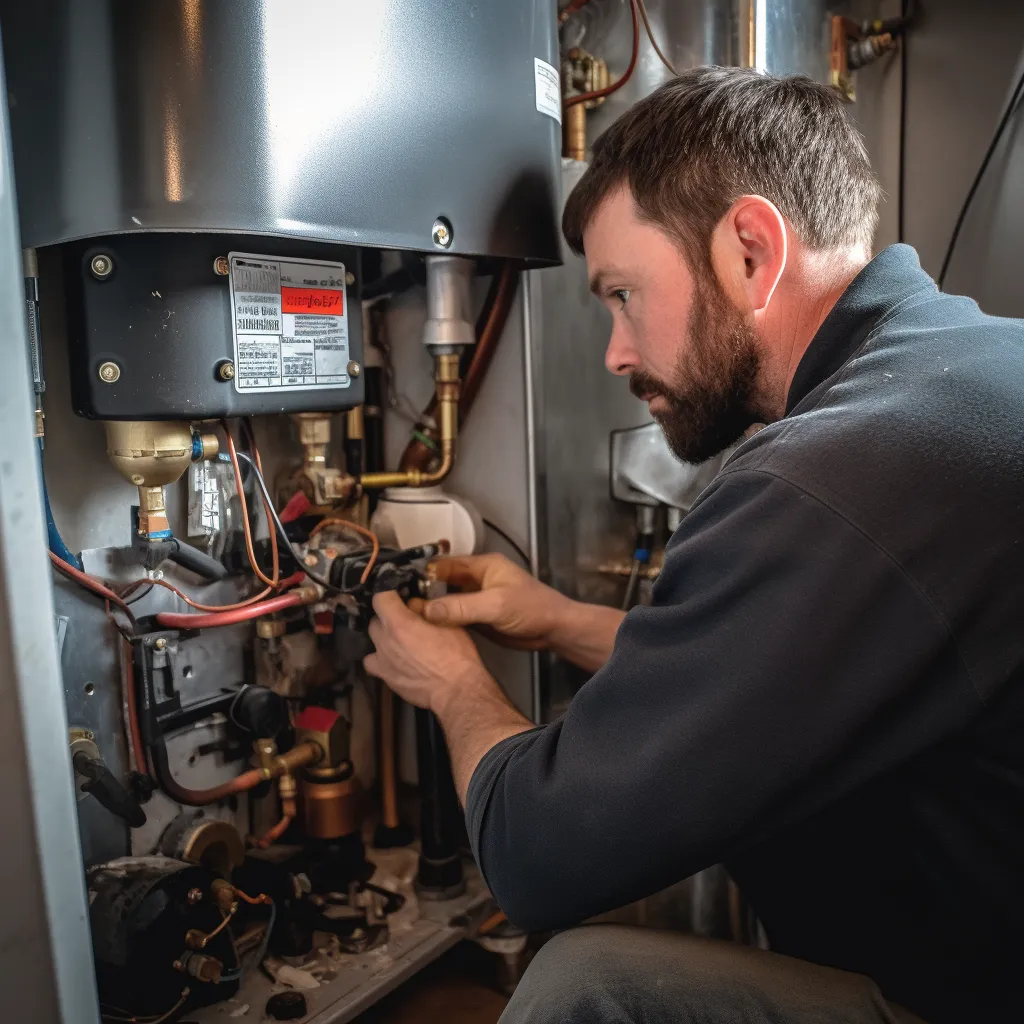
What is a condensing tankless water heater?
A condensing tankless water heater is a cutting-edge water heating system that utilizes advanced technology to maximize efficiency and provide homeowners with an endless supply of hot water. Unlike traditional tank water heaters, which store and continually heat a large volume of water, condensing tankless water heaters only heat water as it is needed, eliminating the need for a bulky storage tank and reducing energy wastage. The key feature of a condensing tankless water heater is its ability to condense water vapor in the exhaust gases, capturing and utilizing the latent heat that would otherwise be lost in conventional tankless or tank-style water heaters. This innovative process allows condensing tankless water heaters to achieve higher energy efficiency ratings, resulting in substantial energy savings and lower utility bills. The operation of a condensing tankless water heater is simple yet efficient. When hot water is required, cold water flows through a heat exchanger in the unit, which rapidly heats the water to the desired temperature. The heater's burner ignites and works to rapidly heat the water, ensuring a constant supply of hot water for as long as it is needed. Moreover, condensing tankless water heaters boast a compact and sleek design, requiring minimal space for installation. This convenience allows homeowners to free up valuable storage space previously occupied by traditional water heaters. Additionally, because they do not utilize a storage tank, condensing tankless water heaters eliminate the risk of leaks or water damage associated with tank-based models.
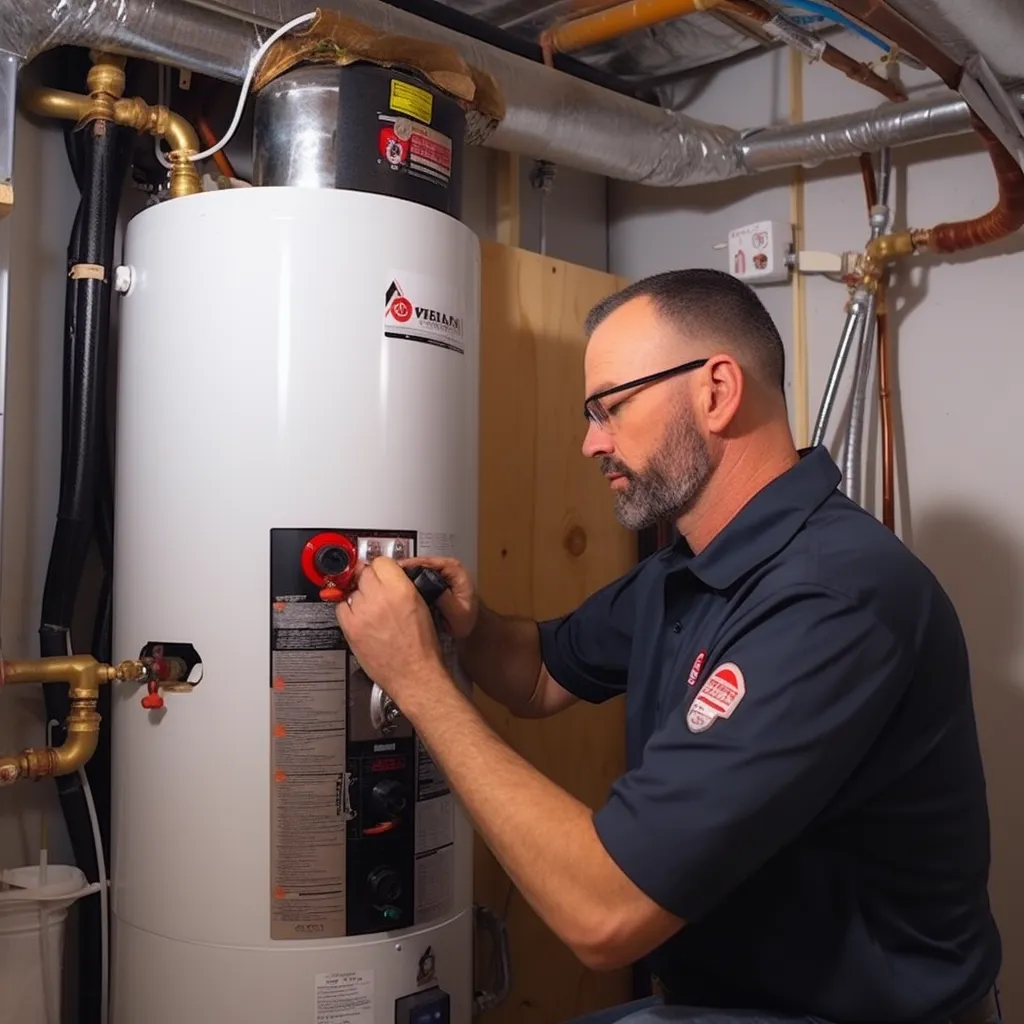
What are the differences: condensing vs non condensing tankless water heaters
When it comes to tankless water heaters, one of the key distinctions lies between condensing and non-condensing models. Understanding their differences can help homeowners make an informed decision when considering a water heater replacement in West Monroe. Condensing tankless water heaters are designed to maximize energy efficiency. These units utilize a second heat exchanger to capture and use any remaining heat from the exhaust gases, which would otherwise be wasted in non-condensing models. By doing so, condensing water heaters achieve higher levels of efficiency, typically in the range of 90-98%. This results in lower energy bills and reduced environmental impact. Non-condensing tankless water heaters, on the other hand, do not utilize a second heat exchanger. Instead, they rely solely on the primary heat exchanger to heat water as it flows through the unit. While these models still offer energy savings compared to traditional tank-style water heaters, their efficiency tends to be lower, typically ranging from 80-85%.
Another noteworthy difference between condensing and non-condensing tankless water heaters is the exhaust system. Condensing units produce cooler exhaust gases, which allows for venting through PVC pipes, providing more installation flexibility. Non-condensing units, however, require venting through stainless steel pipes due to their higher exhaust temperatures. In terms of cost, condensing tankless water heaters tend to have a higher upfront price compared to their non-condensing counterparts. However, the long-term energy savings and lower operating costs can often offset the initial investment.
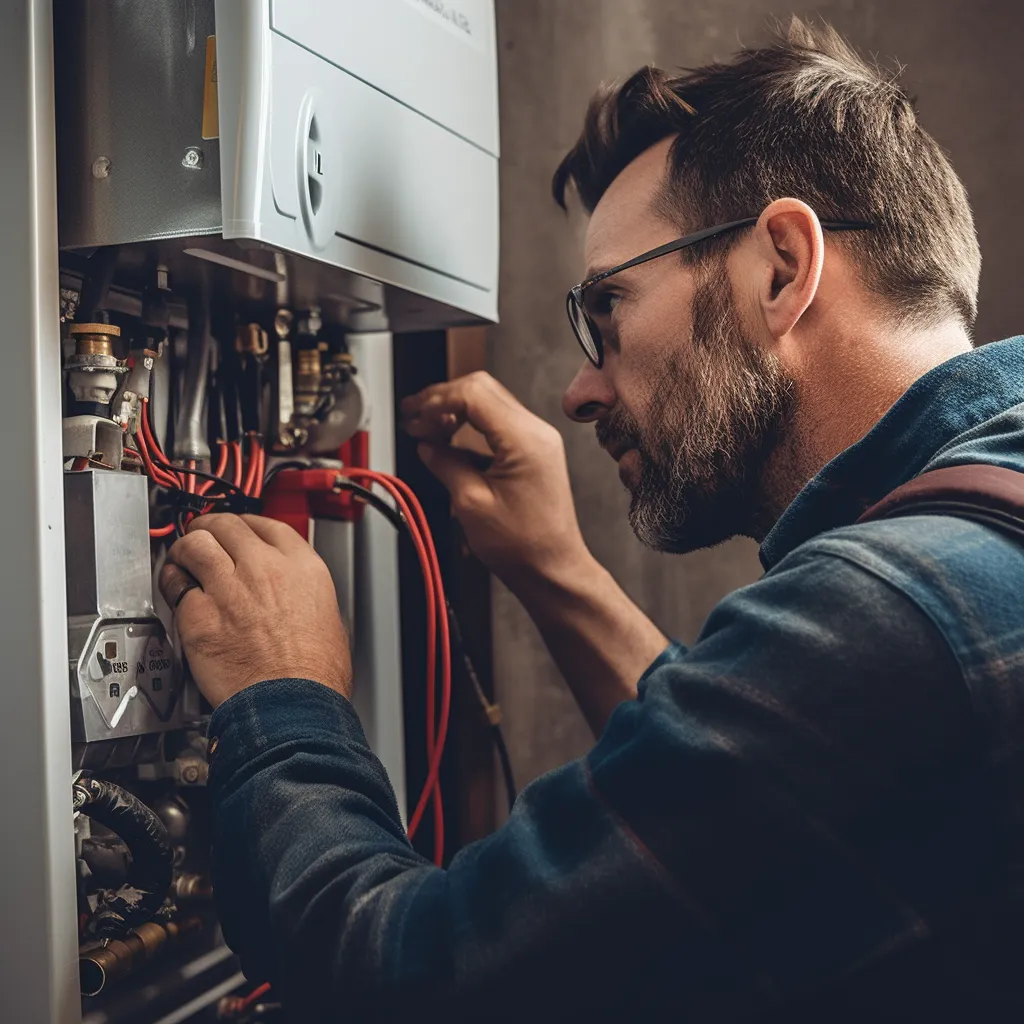
Benefits of a condensing tankless water heater
Condensing tankless water heaters offer a plethora of benefits. These innovative systems utilize advanced technology to provide homeowners with efficient and on-demand hot water while helping them save on energy costs.
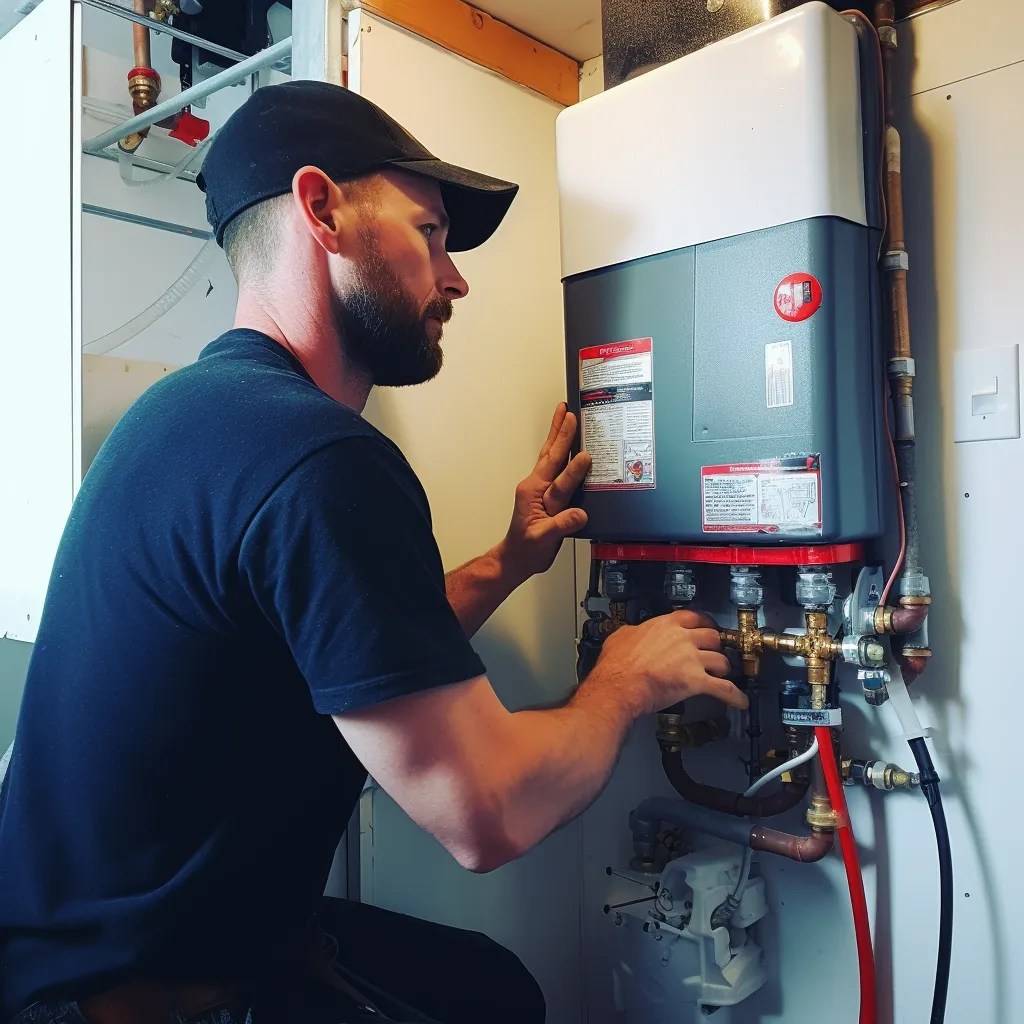
One key advantage of condensing tankless water heaters is their superior energy efficiency. Unlike traditional tank-style water heaters that constantly consume energy to keep a large volume of water hot, condensing tankless water heaters only heat water as needed. This means they don't waste energy by constantly reheating unused water, leading to significant energy savings over time.
Another benefit is their space-saving design. Unlike their bulky counterparts, condensing tankless water heaters are compact and can be mounted on walls, allowing homeowners to free up valuable floor space. This is particularly beneficial for those living in smaller homes or apartments where space is limited.
Condensing tankless water heaters provide endless hot water supply. They can continuously deliver hot water, eliminating the frustrating experience of running out of hot water in the middle of a shower or while doing the laundry. This is especially convenient for larger households or homes with high hot water demand.
In terms of durability and longevity, condensing tankless water heaters are built to last. With proper maintenance and care, they can have a significantly longer lifespan compared to traditional water heaters. This means fewer worries about costly repairs or premature replacements.
Last but not least, condensing tankless water heaters are eco-friendly. Their energy-efficient operation reduces greenhouse gas emissions, making them a more sustainable choice for environmentally-conscious homeowners. By opting for a condensing tankless water heater during water heater replacement in West Monroe, individuals can make a positive impact on the environment while enjoying the benefits of reliable and efficient hot water.
What are the downsides of a condensing tankless water heater?
While condensing tankless water heaters offer many benefits, it's crucial to also be aware of their potential disadvantages:

One of the main downsides of a condensing tankless water heater is the higher initial cost compared to traditional tank water heaters. The advanced technology and energy-efficient features of condensing units lead to a higher price point. However, it's important to note that the long-term savings in energy costs can often offset the initial investment.
The installation of a condensing tankless water heater may require modifications to your home's gas and ventilation systems. These units require proper venting to expel the exhaust gases, which may involve additional installation costs. It's essential to consult with a professional plumber or HVAC technician during the installation process to ensure proper venting and avoid any potential issues.
Another disadvantage of condensing tankless water heaters is their limited flow rate. These units provide hot water on-demand, which means their capacity may be insufficient for households with high water usage, particularly during peak times. It's crucial to choose a unit with an appropriate flow rate to meet the needs of your household.
Condensing tankless water heaters can be more complex to maintain and repair compared to traditional tank water heaters. These units require regular cleaning of the heat exchanger to remove mineral deposits, which may lead to expensive maintenance costs and potential downtime if not done properly. It's essential to follow the manufacturer's guidelines for maintenance to ensure the longevity and efficiency of the unit.
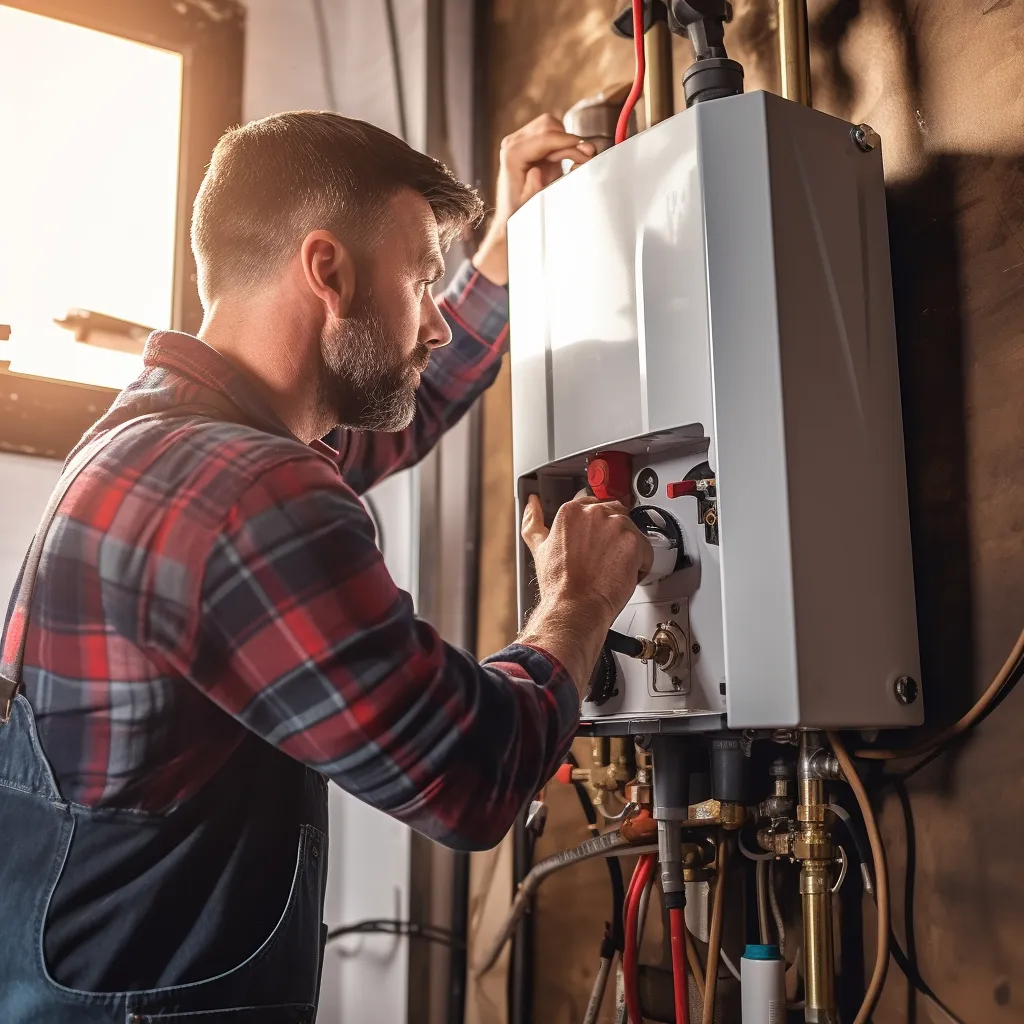
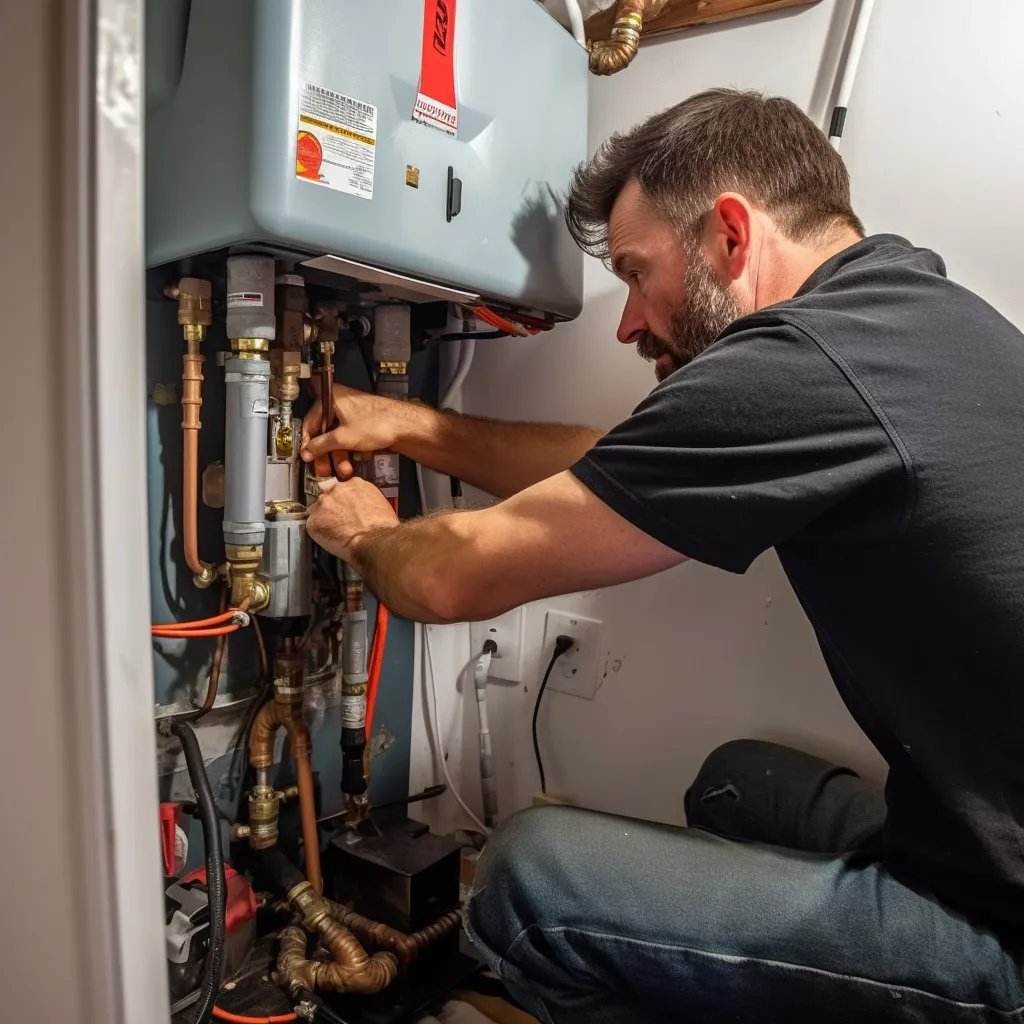
Are condensing tankless water heaters energy-efficient?
When it comes to energy efficiency, condensing tankless water heaters are among the best options available in the market. These innovative appliances are designed to maximize energy savings while providing hot water on demand. Unlike traditional tank water heaters, condensing tankless water heaters do not store and constantly reheat water. Instead, they heat the water as it flows through the unit, reducing standby heat loss and eliminating the need to keep a large tank of water constantly hot. The key to the energy efficiency of condensing tankless water heaters lies in their advanced heat exchanger technology. As the name suggests, these water heaters condense the water vapor and combustion gases in the flue, resulting in increased heat exchange efficiency. By extracting as much heat as possible from the exhaust fumes, condensing tankless water heaters can achieve energy efficiencies of up to 98%. In addition to their high energy efficiency, condensing tankless water heaters also offer other benefits. They have a compact design that saves valuable space in your home, and they can provide an endless supply of hot water, as long as the demand does not exceed the unit's capacity. Additionally, condensing tankless water heaters have a longer lifespan than traditional tank water heaters, typically lasting 20 years or more with proper maintenance.
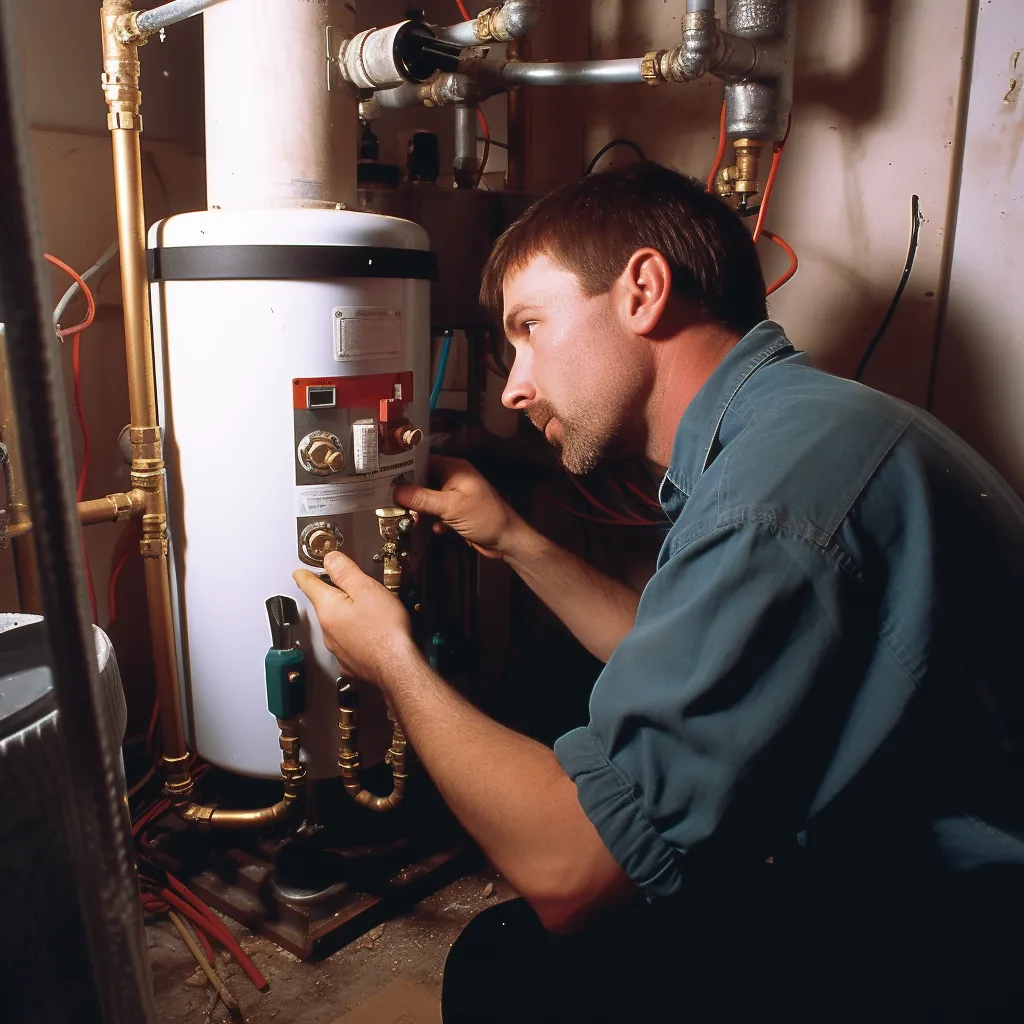
Are non condensing tankless water heaters energy-efficient?
Non-condensing tankless water heaters can be energy-efficient, but they are generally less efficient than condensing tankless water heaters. Unlike condensing models which recover heat from the exhaust gases, non-condensing tankless water heaters do not utilize this heat, resulting in lower efficiency. However, they can still provide energy savings compared to traditional storage tank water heaters. Non-condensing tankless water heaters rely on a powerful burner to heat water on demand, which can be wasteful if not properly sized for the household's hot water demand. It's crucial to choose a unit that matches the needs of the household to maximize energy efficiency. Additionally, proper installation and maintenance of a non-condensing tankless water heater are essential for optimal efficiency. Ensuring the heater is properly vented and cleaned regularly will help minimize energy loss and extend the unit's lifespan.
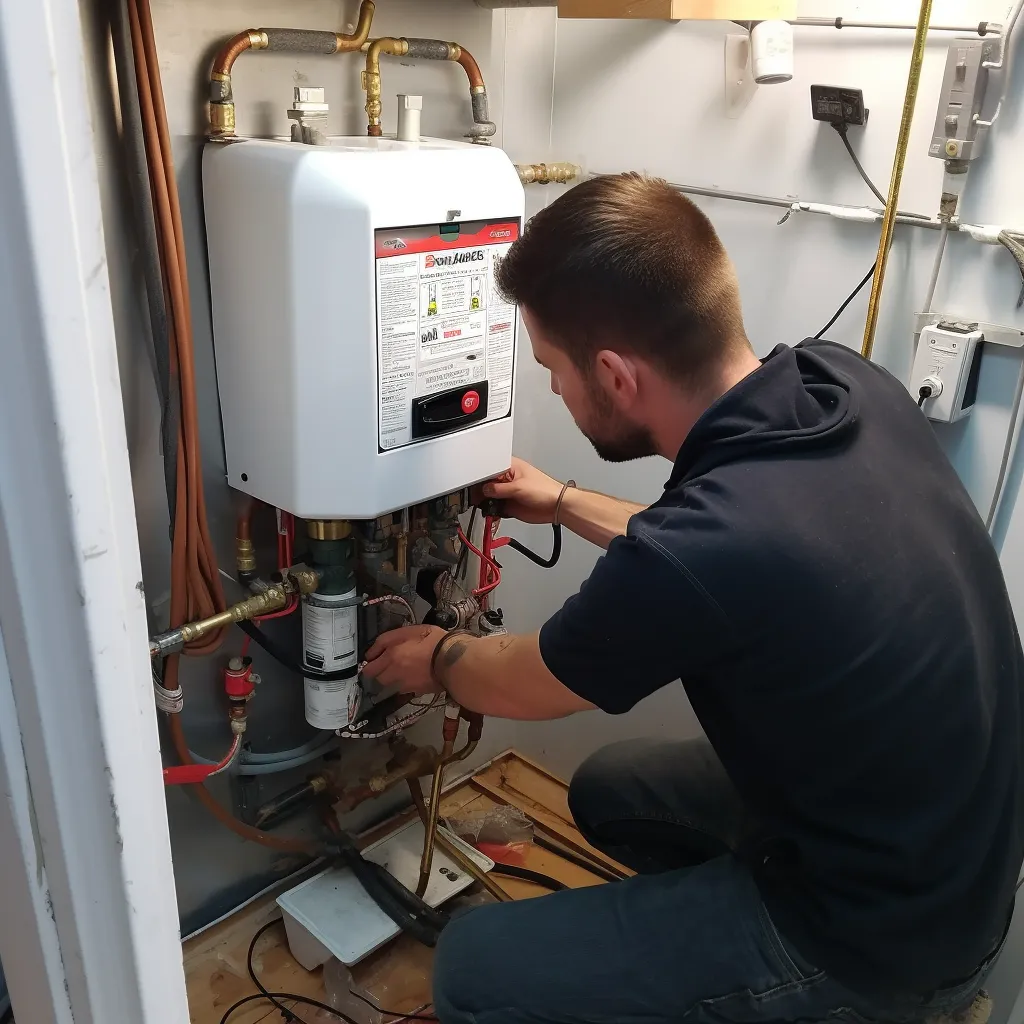
What does it cost to buy and install a condensing tankless water heater?
The price to purchase and install a condensing tankless water heater can vary depending on various factors. These factors include the brand, model, size, and the complexity of the installation process. Typically, the cost range for a condensing tankless water heater starts around $1,500 and can go up to $4,500 or more. In addition to the initial purchase cost, you need to factor in the installation expenses. Hiring a professional plumber for a reliable and efficient installation is crucial to ensure optimal performance. The installation cost can vary based on the complexity of the job, existing plumbing infrastructure, and any additional work required to fit the new system seamlessly. It's important to emphasize that while the initial investment might seem higher compared to traditional water heaters, a condensing tankless water heater provides long-term savings due to its energy efficiency and prolonged lifespan. Additionally, the endless supply of hot water and reduced maintenance needs contribute to its overall value

What does it cost to buy and install a non condensing tankless water heater?
On average, the cost of a non-condensing tankless water heater can range from $800 to $1,500. However, keep in mind that this is for the unit itself and does not include installation. The installation cost will depend on various factors, such as the complexity of the installation, any necessary modifications to your plumbing system, and the labor rates in your area. In West Monroe, you can expect to pay an additional $500 to $1,000 for professional installation. It's crucial to have a licensed and experienced plumber handle the installation to ensure proper setup and avoid any potential issues down the line. While the upfront cost of a non-condensing tankless water heater may be higher compared to traditional tank-style water heaters, they offer numerous advantages such as energy efficiency, unlimited hot water supply, and space-saving design.
Maintenance requirements for a condensing tankless water heater
When it comes to the maintenance requirements for condensing tankless water heaters, there are some important factors to consider. They are known for their energy efficiency and endless supply of hot water, but taking care of these systems is essential to ensuring their longevity and effectiveness.

One of the primary maintenance tasks for condensing tankless water heaters is descaling. Since these units heat water directly as it passes through the system, mineral deposits can accumulate over time. This buildup can hinder the efficiency and performance of the water heater. Regular descaling helps remove these deposits and keeps the unit running smoothly.
In addition, condensing tankless water heaters require periodic cleaning of the inlet filters. These filters are designed to catch any debris or sediment in the water supply before it enters the heater. Over time, these filters can become clogged, resulting in reduced water flow and potential damage to the unit. Regularly cleaning or replacing these filters is crucial for optimal performance.
Another important maintenance task is checking for leaks and inspecting the unit for any signs of damage. Any leakage or damage can lead to water wastage or even more severe issues if left unaddressed. Regular inspection ensures that any potential problems are detected early on and can be resolved promptly.
It is also recommended to flush the system regularly to remove any remaining sediment or debris. Flushing helps maintain the efficiency of the heater and extends its lifespan.
While some of the maintenance tasks can be handled by homeowners, it is highly advisable to seek professional assistance for complex issues or major repairs. Hiring a certified technician for annual inspections and servicing can help identify any potential problems that may require a water heater replacement in West Monroe.
Regular maintenance of condensing tankless water heaters is crucial for optimal performance and longevity. Tasks such as descaling, cleaning filters, checking for leaks, inspecting for damage, and flushing the system should be included in a regular maintenance routine. Seeking professional assistance for more complex issues ensures that your water heater operates efficiently and reliably for years to come.
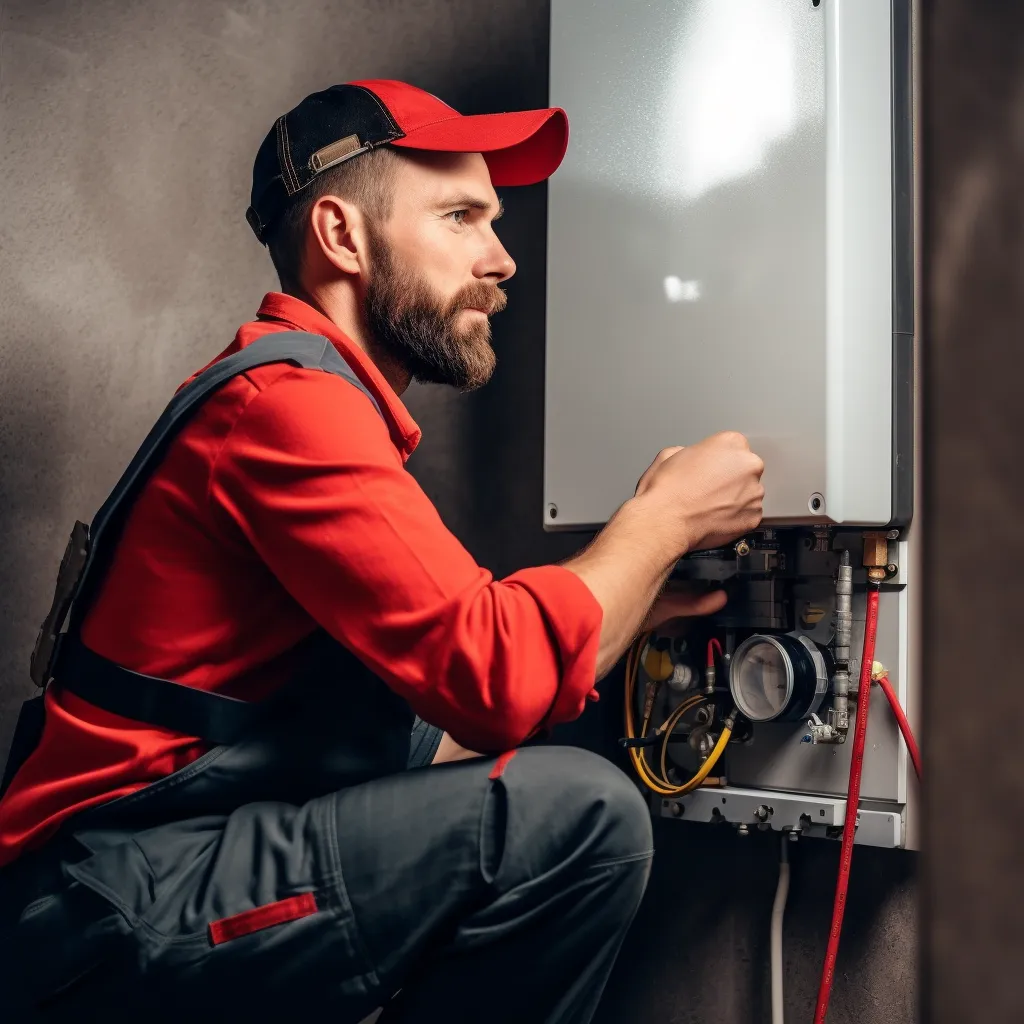
Maintenance requirements for non condensing tankless water heaters?
When it comes to non-condensing tankless water heaters, proper maintenance is essential to ensure their longevity and efficiency. Here are some key maintenance requirements to keep in mind:
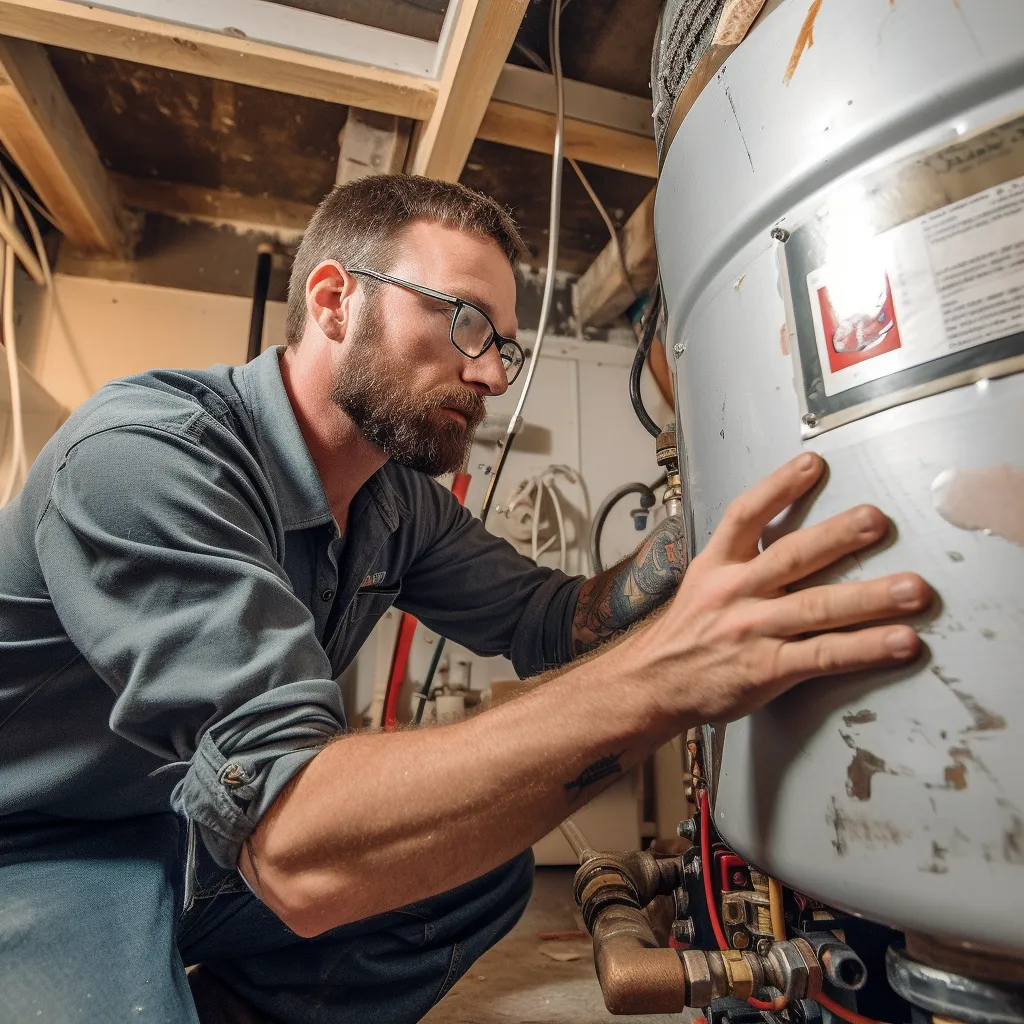
Flushing the System: Over time, minerals and sediments can accumulate within the water heater, leading to reduced performance. Regularly flushing the system helps remove any buildup and maintain optimal water flow. It is recommended to flush the system at least once a year.
Descaling: In areas with hard water, mineral scaling can become a problem. Scaling can obstruct the water flow and reduce the efficiency of the water heater. Descaling involves removing these mineral deposits from the heat exchanger and other components using a descaling solution. The frequency of descaling depends on the water hardness and usage but should be done periodically, typically every six months to a year.
Checking for Leaks: Inspect the water heater regularly for any signs of leaks, including water puddles or dampness around the unit. Leaks can cause water damage, lead to further issues, and reduce the heater's efficiency. If any leaks are detected, it is important to address them promptly by hiring a professional for water heater replacement in West Monroe.
Air Filter Cleaning: Some non-condensing tankless water heaters have air filters that prevent dust and debris from clogging the burner. Cleaning or replacing these filters regularly is crucial to maintain proper airflow and combustion. Refer to the manufacturer's guidelines for the recommended cleaning frequency.
Professional Servicing: Even with regular maintenance, it is advisable to have a professional inspect and service your water heater periodically. They can perform a comprehensive check-up, ensure all components are functioning correctly, and address any potential issues before they escalate.
How to choose between a non condensing vs condensing tankless water heater
When it comes to selecting the right tankless water heater for your needs, one of the key decisions you will need to make is whether to opt for a non-condensing or a condensing model. Both options have their advantages and considerations, so it's essential to weigh them carefully before making a decision.
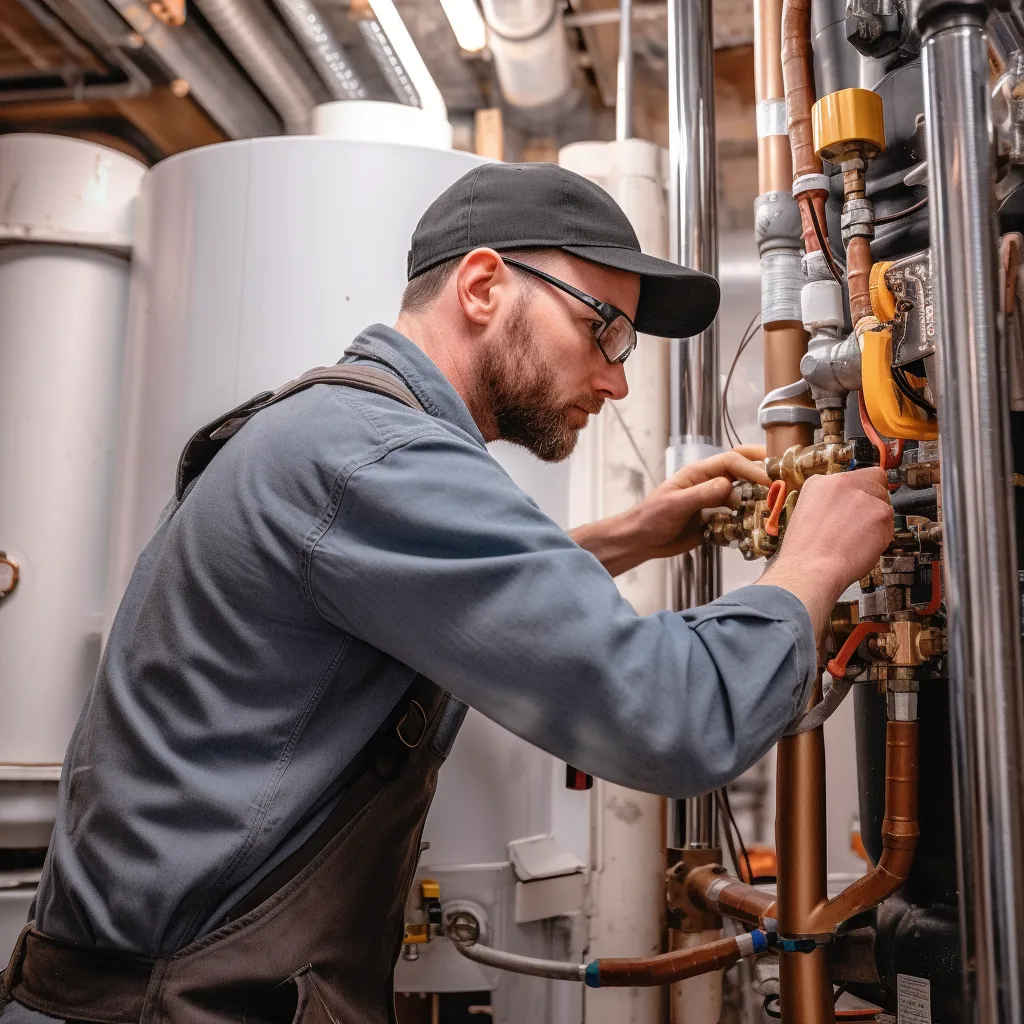
Non-Condensing Tankless Water Heater: 1. Cost: Non-condensing tankless water heaters are generally less expensive upfront compared to their condensing counterparts, making them a more budget-friendly option. 2. Installation: These models typically require a smaller venting system, which can make the installation process less complex and more cost-effective. 3. Efficiency: While non-condensing models are still more efficient than traditional tank water heaters, they do not recover as much heat from the exhaust gases. Therefore, they may have a lower efficiency rating overall.
Condensing Tankless Water Heater: 1. Energy Efficiency: Condensing tankless water heaters have a higher energy efficiency rating as they recover heat from the exhaust gases, resulting in reduced energy consumption and lower utility bills. 2. Venting Requirements: Due to their higher efficiency, condensing models require a larger venting system, which may involve more significant installation complexities and costs. 3. Long-Term Savings: Although condensing units have a higher upfront cost, their energy-saving capabilities can lead to substantial long-term savings on operating costs.
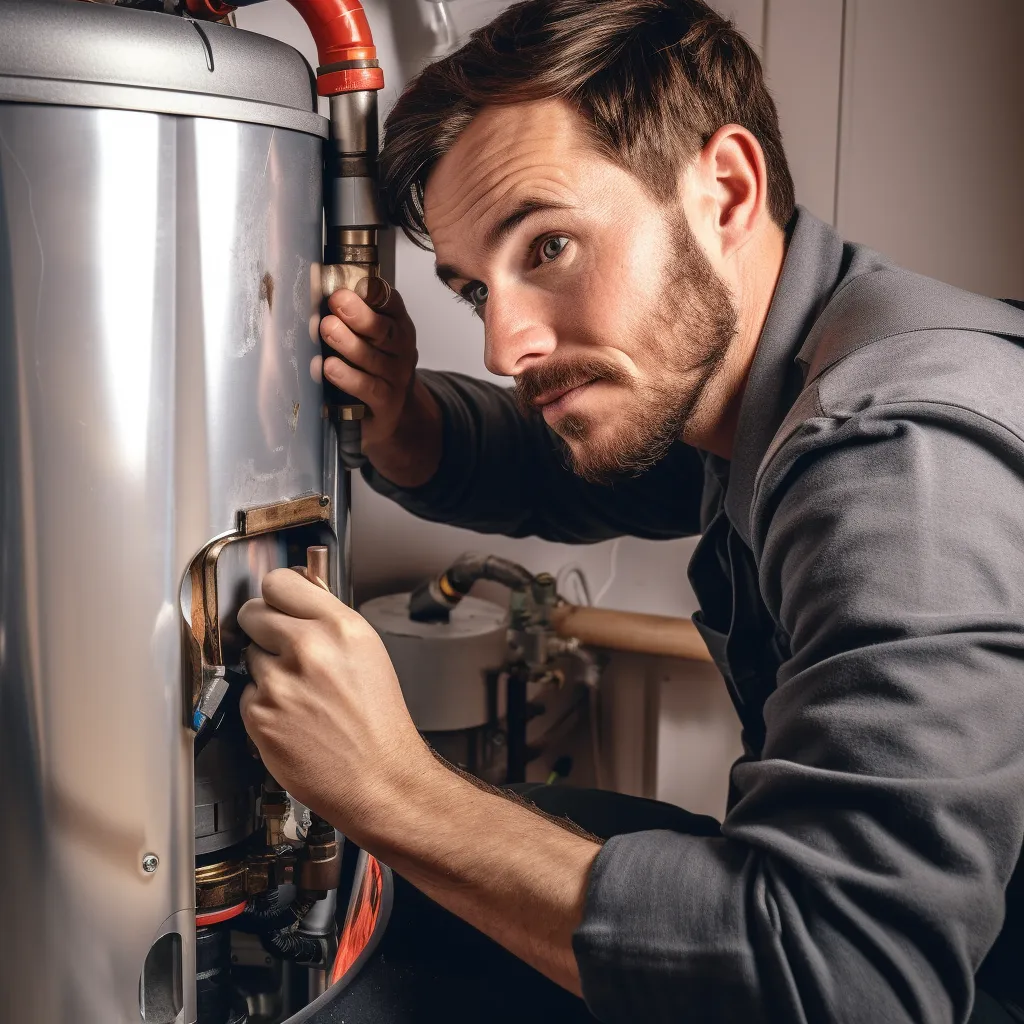
It's crucial to conduct thorough research
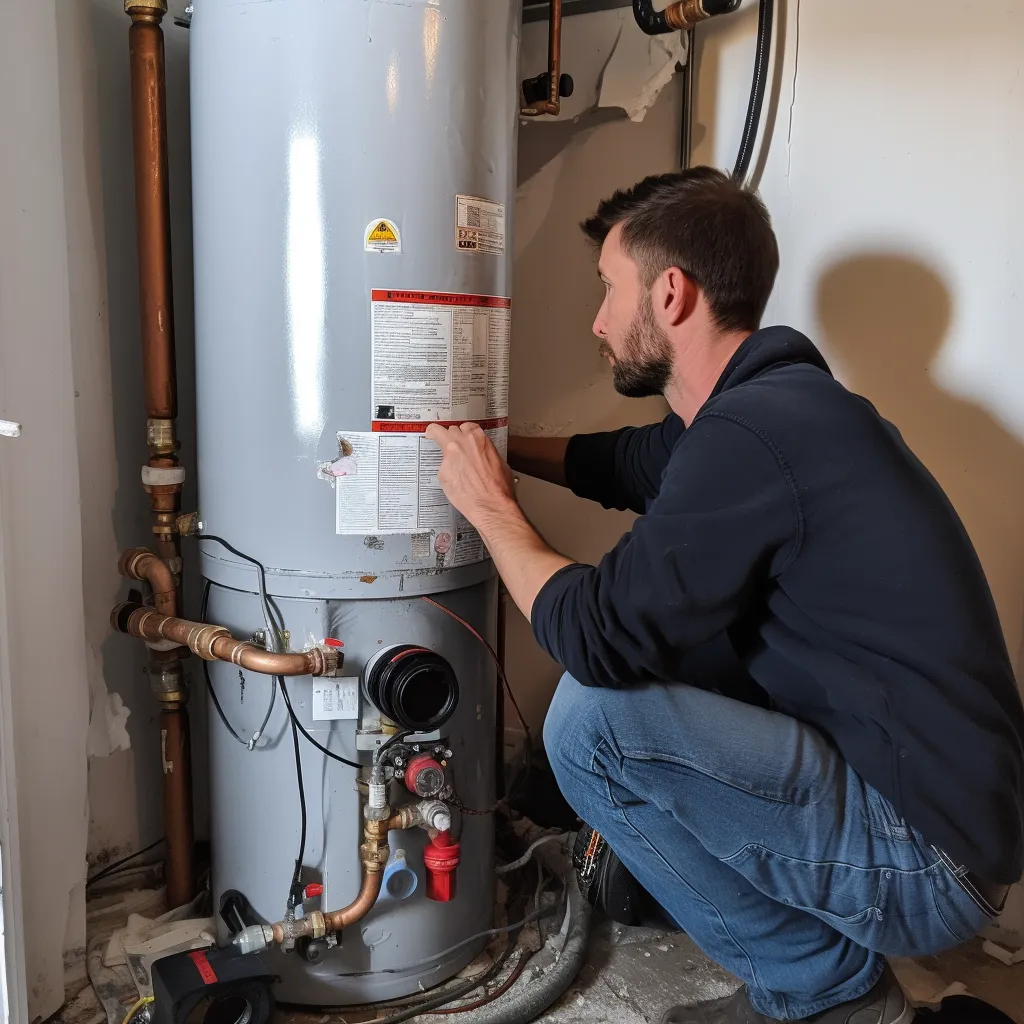
When it comes to selecting a tankless water heater for your home in West Monroe, it's essential to weigh the advantages and drawbacks of different options. One crucial factor to consider is whether to choose a condensing or non-condensing unit. While the non-condensing option may seem cheaper upfront, it's worth noting that these units can waste energy and require more maintenance over time. On the other hand, condensing tankless water heaters offer greater cost-effectiveness and can help reduce utility bills. By carefully comparing different options and selecting the right type of water heater replacement for your needs, you can enjoy a continuous supply of hot water while saving energy and money in the long run.
Contact Us
GET IN FULL TOUCH
PHONE: (318) 933-7010
EMAIL:
shane@waterheaterwestmonroe.com
Shane Wright Plumbing
West Monroe, LA 71292
